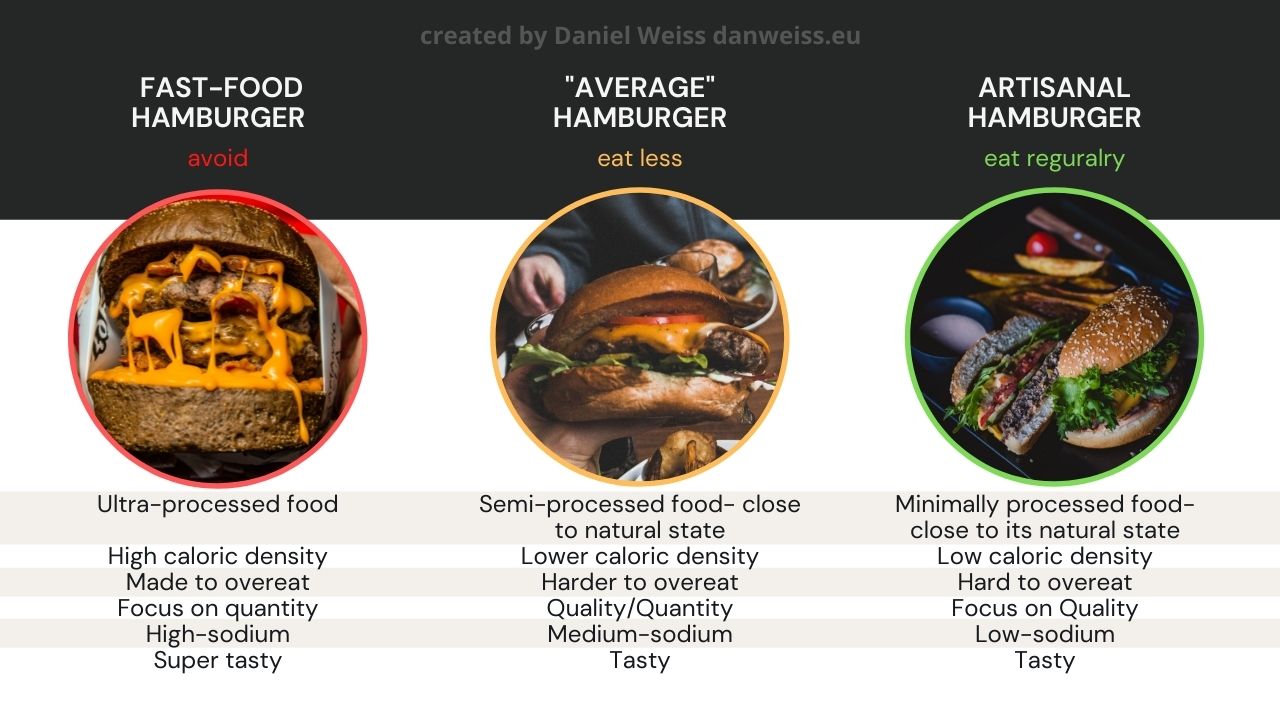Entrepreneurs’ Guide to Health, Energy, and Performance
- How to manage your energy (and why we are lazy);
-
Simple, yet effective nutrition strategies to keep your body & mind fit (without meal prepping all your food);
-
Supplements to support your physical and mental health;
-
Effective training methods (that fit busy schedules and don’t rely on getting up at 4.a.m)
Here is what’s important:
-
Rest & recovery
-
Food
-
Movement/exercise
Imagine you have 10 energy units: how do you spend them?
- Health
- Training/Exercise
- Work
- Spiritual needs
- Self-Development
- Family and Relationships
Self-discipline and Energy
Why I can’t make myself read a book in the evening and rather watch TV?
One manager asked me why he couldn’t bring himself to read a book in the evening even though he knew it would be beneficial for him. Instead, he watches TV. It frustrates him because he feels like he lacks discipline. After learning about his daily routine and understanding why he wants to read, we came to a simple conclusion. He was too tired in the evening, so he preferred to relax by watching TV. It helped him realize that the problem was not laziness; he was just tired.
Deeper explanation:
We have two pathways in our brain involved in decision-making:
- Goal-seeking system – It helps to make decisions aligned with long-term goals. It costs energy.
- Habitual system – It is based on the learned patterns of stimulus and response. It focuses on short-term gain. It saves energy.
-
If you are stressed, a candy bar on your table is a quick source of energy & it costs no energy to get.
-
A healthy meal in the office kitchen requires you to go to the kitchen (and you spend some energy to get there).
-
When you don’t know what to eat, thinking about what to eat, then going to a shop and preparing a healthy meal requires a lot of energy.
How to optimize energy
If you want to achieve more during the day, you need to optimize your energy. Identify and do things that give you more energy than they take away. Strategically distribute them throughout the day to provide you with energy for the things that drain you.
-
Nutritious meals
-
Deep talks
-
Purposeful work
-
Movement/exercise
-
Meditation
-
Sleep
-
Unpurposeful work
-
Activities you suck at
-
Caffeine when battling lack of sleep
-
Workouts if done wrong
-
Wrong foods and diet approaches
-
Some people
-
Being awake
Nutrition
Adequate energy supply
Five ways how you can eat healthy when your life gets stressful:
-
Find quick, easy-to-prepare recipes. Overnight oats, sandwiches, and smoothies are great choices. This is one of the occasions when I would consider meal replacement shakes.
-
Use dinner leftovers: Breakfast doesn’t need to be oats. Have your previous day’s dinner for breakfast or lunch at work.
-
Plan food at your workplace: Food at your workplace bistro might not be the best choice but you can make it work. Bistros and canteens provide a menu for the whole week so it’s easy to plan ahead and play nutrition puzzle. Most places provide delivery so ordering food from a nearby places is also an option. Instead of preparing the whole meal at home, Janka made chicken breasts at home and combined them with a salad she bought at her workplace.
-
Have Plan B: Keep your pantry stocked with canned and frozen foods. These can be ingredients but also whole meals that you prepare, portion, and freeze. Frozen Chilli sin carne saved me when I had a fever and no energy to cook.
-
Scale it down to your own situation, instead of trying to be 10/10 all the time, aim for 8/10.
You don’t need to prepare all the food by yourself if you want to eat healthy.
Here’s what’s important:
What helped them?
- They reviewed the weekly menu in advance and selected the most suitable meals, even if they weren’t always 100% ideal.
- If there was a carbohydrate-based meal, they brought proteins to accompany it. For example, if the daily menu included jam-filled pastries, they bought cottage cheese or brought protein powder to have a more balanced meal.
- They focused on the other 16 meals: breakfasts, dinners, and snacks in between.
Striving to have a balanced, homemade diet that not only satisfies you but also aligns with your goals is commendable. It’s not necessary for all your meals to be ideal to meet your goals. Focus on improvement rather than perfection.

Remember:
Supplements
Supplements that Might Work:
Training
Motivated people spend hours in the gym for marginal if any benefit. They want it bad enough, invest hours of their time yet they miss so much of the fundamentals. Not sleeping enough, drinking, and nutrition is lacking, but want to increase the number of kilometers they run a week, and the weight they lift.
-
Plan your days, including workouts. If working out is important for you, put it earlier in the day. People who work out before work tend to be most consistent. It will also energize you.
-
If you can’t make it to the gym, use bodyweight exercises. Use different variations of squats, pushups, or pull-ups that are challenging for you. You can also use resistance bands or suspension trainers that you can carry with you, use outside, or at home.
-
Split long workouts into several shorter workouts. If your prescribed workout calls for 5 exercises, 5 sets each, you can split it between two or three workouts during the day.
-
Superset. Supersets are exercises done back to back without rest. With supersets, you use different muscle groups, for example, a set of squats followed by a set of push-ups. This saves you time and gives the muscle enough rest between sets.
-
Exercise snacks are my favorite way how to work out when I travel or when I am stuck behind a desk. The idea is to do five-15 minutes of exercise multiple times a day. For example, every 30 minutes, you can do 10 pushups, 10 single-leg squats, and 10 pull-ups.
Remember:

I was surprised that I can still improve.
“Even though I have more demanding conditions in terms of recovery and space, I feel that I am still improving, that it is going in the right direction. I see that it’s not like I didn’t sleep and suddenly I can’t do anything. Even in my diet, I stopped counting calories, , I stopped eating at night and even lost a few hundred grams. So I’m paying attention, I keep an eye on it so I don’t overeat when I don’t need to. I was surprised, in the positive sense of the word, that Ican still improve.”
References
-
Slutsky, Inna et al. “Enhancement of learning and memory by elevating brain magnesium.” Neuron vol. 65,2 (2010): 165-77. doi:10.1016/j.neuron.2009.12.026
-
Abumaria, Nashat et al. “Effects of elevation of brain magnesium on fear conditioning, fear extinction, and synaptic plasticity in the infralimbic prefrontal cortex and lateral amygdala.” The Journal of neuroscience : the official journal of the Society for Neuroscience vol. 31,42 (2011): 14871-81. doi:10.1523/JNEUROSCI.3782-11.2011
